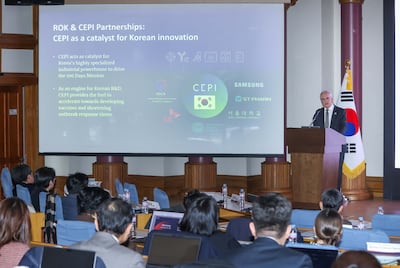Manufacturing
The US-India dance on pharma goes on as they announce a trade deal framework that continues to exempt generics from the reduced 18% tariffs till a “negotiated outcome” is reached post a Sec. 232 investigation. However, oil imports from US could increase costs for pharma
The FDA wants to waive facility fees for three years if a sponsor breaks ground on a US-based manufacturing plant, but industry is concerned the idea will force other sponsors to subsidize competition.
After taking the reins as president of Medicines for Europe at the start of 2026, Zentiva CEO Steffen Saltofte sets out priorities for the group that include ensuring access to medicines, industry resilience and competitiveness, harmonized regulation, and sustainability for the off-patent sector.
In contributed commentary, Susan Levy, SBL Consulting Group founder and principal, discusses likely health and wellness market developments which would reflect a steady shift toward more accessible, consumer-centric models of care complementing traditional healthcare.
At a recent discussion in South Korea, CEPI and other participants explored ways to discover new health cooperation models that go beyond traditional aid approaches and to strengthen Korea’s role.
“Dietary Supplement Regulatory Uniformity Act” would prohibit states from adding requirements and rules for supplement manufacturing and sales on top of FDA regulations.
India’s budget backs plans to scale production of biologics and biosimilars, shore up its clinical trials network and strengthen the regulatory framework. Customs duty exemptions given to several big pharma therapies, including those of Novartis and Takeda.
Even though the ink has long dried on the US-South Korea trade deal, new threats have prompted Celltrion to reiterate its “fundamental solution” to tariff concerns.
MS Pharma is continuing to capitalize on opportunities for localized manufacturing in the Middle East, with its latest deal with Hetero Biopharma covering five biosimilars.
From a biofoundry network and pharma industry backed AI research organization to a small-molecule repurposed drug in Duchenne’s muscular dystrophy, experts discuss a number of advances underway as India seeks to move up the innovation ladder.
As Dr Reddy’s delivered results for its financial third quarter, the firm revealed a slew of updates for key biosimilars in its pipeline including filing and launch plans for abatacept in the US and Europe, as well as US setbacks on rituximab and denosumab.
The leading Japanese generics player and local originator will collaborate on technology transfer, contract manufacturing and product succession as part of a cross-sector effort to strengthen supply chains for long-listed and off-patent medicines.











